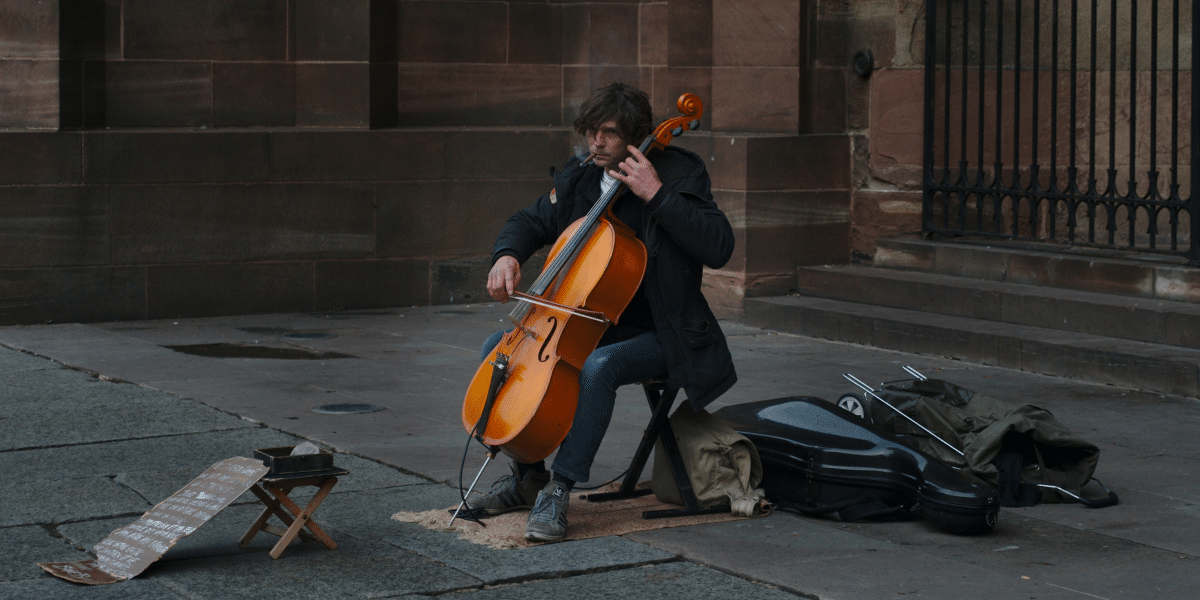Thousands of motorcyclists and bikers ride across the American roads in groups or as solo riders seeking thrill and adventure or following their passion for riding. However, Mark Fargo stands out in American road stories owing to his late start into motorcycle riding at sixty and his unconventional technique of recording these excursions in photographs while writing poetry and sharing his experiences through books. “Motorcycle Haiku 4: Lobo Solitario Continues His Journey in Noir et Blanc” is the latest addition to Fargo’s literary portfolio, blending haiku poetry with black-and-white photographs. The book captures the spirit of the American environment by combining and contrasting loneliness and stark beauty.
A Transformative Journey from Classroom to Open Roads
Mark Fargo was born on April 28, 1953, at French Hospital in downtown Los Angeles. Since birth, his life has been extraordinary. His childhood, as the son of Cecilia and Charles Fargo, was less utopian than the 1950s families portrayed in popular media and television. His difficult upbringing and background inspired him to seek various meaningful ways of expression elsewhere. After a tumultuous father-son relationship and an enlightening hitchhiking trip from Scotland to Turkey, Fargo found academic stability. After getting a master’s degree in social justice, he taught high school social science for 17 years.
Fargo started riding and began his life-changing adventure three years before retiring from teaching. Most people typically settle down after retirement, but Fargo began riding a motorcycle to find the road’s freedom and explore new journeys. This decision drove the desire for new experiences and reconnecting with the world. He also started writing poetry and taking photographs on his journeys to chronicle his adventures while penning poems as a creative expression.
Motorcycle Haiku 4 and Lobo Solitario
Motorcycle Haiku 4: Lobo Solitario Continues His Journey in Noir et Blanc is the latest addition to Fargo’s creative repertoire and books. In “Motorcycle Haiku 4,” Fargo continues his storytelling style. Every picture in the book accompanies a seventeen-syllable haiku that captures the scene. The book’s arrangement reflects Fargo’s journey around the US, documenting situations most travelers and riders overlook. These include Yosemite’s vast landscapes and the shadow-filled streets of small-town America.
The book’s title represents Fargo’s solo riding practice. He rides alone rather than in a group, representing how he has been alone on the roads, exploring the American vastness. Fargo does not attend large gatherings like Sturgis or Daytona, as being among tens of thousands of people is annoying to him, and it usually gets loud and disorderly. One of his colleagues gave him the Lobo Solitario (Lone Wolf) moniker because he always rides alone, allowing him to make decisions rather than haggling with others to take particular routes or go to specific places.
Fargo prefers black and white photography to honor his subjects’ timeless qualities, which shows his sincerity and simplicity. The author deliberately removes colors to draw attention to the landscape’s contrasts and textures, deepening the viewer’s connection to the picture and the time it represents.
Artistic Evolution: From Beat Poetry to Haiku
Mark Fargo’s writing has evolved through his riding and writing journey. His early works were energetic and profuse, influenced by 1960s beat poets. His lyrical approach evolved with his physical and metaphorical trip. He naturally turned to haiku to express his riding experiences more concisely yet significantly.
His body of work shows this progression beyond his most recent book. Some of his previous works, “Motorcycle Haiku: Lobo Solitario,” “Motorcycle Haiku Déjà vu,” and “The Art of Motorcycle Haiku,” show his progression toward short, contemplative haiku rhythms over beatnik musings.
A Lens-Marked Literary Journey
One can quickly identify Fargo’s style progression and deepening topics from his various trips. His later books and poems are more introspective than his early works, representing a bold explorer spirit. This maturing and evolution represents the writer’s growth and a man’s exploration of America’s deeper and more serene sides.
As “Motorcycle Haiku 4” shows, Mark Fargo’s art goes beyond being a mere travelogue. In the book, he explores life, its routes, and its turning points. His dialogue between the road and the pen resonates with readers and travelers seeking the meaningful in quiet times.
Mark Fargo’s Literary Journey: Charting the Development of a Moto Poet
Each edition in Mark Fargo’s book collection explores the American outdoors and landscapes through the twin lenses of his camera and poetic sensibility, illustrating a unique journey. From “Motorcycle Haiku: Lobo Solitario,” his first effort to mix haiku and photography, to “The Art of Motorcycle Haiku,” which goes into more subtle aspects, Fargo’s engagement with his surroundings has evolved significantly. His Beatnik history and travel experiences inform his poetry in “Early Morning Offerings” and “I’m Just an Old Beatnik.” By the time readers arrive at “Motorcycle Haiku Déjà Vu,” it is clear that the author has traveled a lot and effectively portrayed the natural and human environments he has encountered.
Each poem is a moment of thought under the vast American sky, while each book is another mile on an endless highway. Fargo’s evolution toward “Motorcycle Haiku 4: Lobo Solitario Continues his Travel in Noir et Blanc” is the culmination of years of observation, study, and experience distilled into haiku, which requires accuracy but offers simplicity.
Challenges and Adventures on The Road
Fargo travels over 20,000 miles annually on his Yamaha Super Tenere, facing issues beyond weariness and weather. Each path he takes has its own dangers, beauty, and appeal. His adventures range from the joy of finding a new vista to the despair of littered landscapes, representing a recurring theme in his environmental concerns.
Fargo perceives the challenges as opportunities rather than obstacles to connect and engage deeply with the world. Every contact with nature or humans adds to his story and makes his work more complex. He overcame these challenges by committing to his craft, which few can sustain over extensive travels.
Fargo’s California license plates often bring him into touch with prejudiced people, which he uses to promote a more inclusive understanding of American diversity and challenge regional biases. Fargo uses his work to promote communication, inclusion, and cooperation across geographical and ideological borders.
Mark Fargo’s literal and literary journey portrays the power of observation, the beauty of simplicity, and the depth of reflection. In “Motorcycle Haiku 4,” like in his previous works, Fargo invites the reader to explore life through his vision. His travels, writing, and photography describe America’s internal topography, which will resonate with those seeking meaning in their journey. Fargo’s persistence in writing and riding reveals the deeper aspects of American life and the human experience.
Published by: Holy Minoza












